Tips & Tricks
Laundry
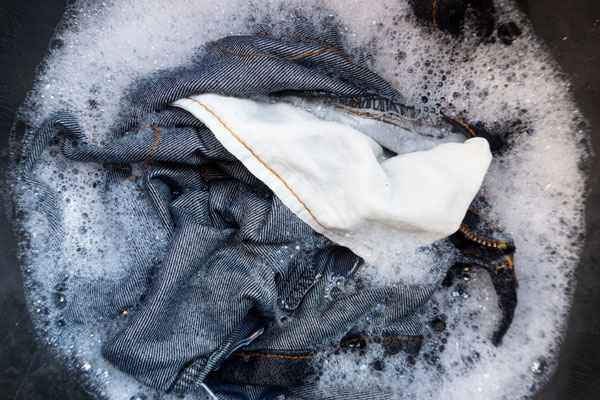
Help your jeans last longer.
Imagine your favourite jeans, their once dark blue colour fading to a shade you can barely recognize. How can you fight back and keep your favourite pieces looking fresh and stylish? Turn your jeans inside out before putting them in the washing machine.
To keep your jeans looking great for a long time, choose a washing program for delicate fabrics. Avoid harsh bleaches and fabric softeners. These enemies can damage the fibres of your denim, leaving it dull and lifeless.
These simple tricks will help you to enjoy in your jeans longer and your look staying timeless.
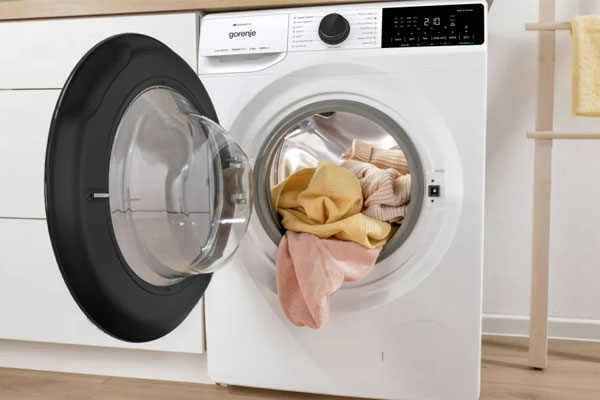
Your dryer enjoys warm places too.
Large household appliances can be some of the biggest energy consumers. But there are some simple tricks to curb their appetite. If you keep your tumble dryer in a cold room, such as the garage, it will have to work harder and use valuable energy just to heat up the air.
When the temperature drops seasonally, the dryer uses more energy to heat. By placing it in a warmer environment, you not only save energy but also ensure optimal performance and a longer lifespan.
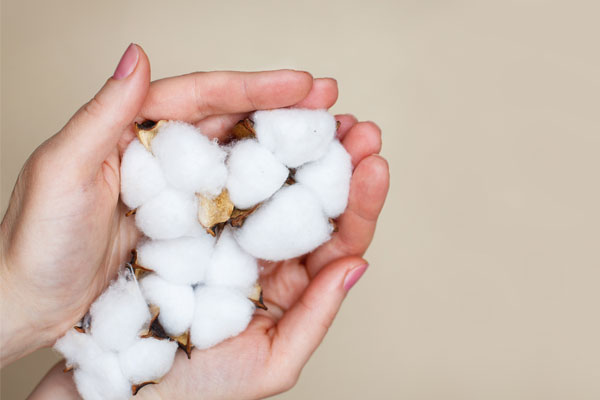
You feel what your wear. Choose organic.
Stepping into sustainable fashion is all about starting with the right materials. Look for garments made from eco-friendly fabrics like organic cotton, linen, or hemp. These materials have a significantly lower environmental impact during production. Organic cotton, for example, uses less water and is grown without harmful pesticides.
Want to make more sustainable choices in your wardrobe? Choose eco-friendly fabrics durability and minimal water requirements. Linen, made from flax plants, is biodegradable and recyclable. Recycled polyester gives a new life to plastic waste.
By consciously choosing clothes made from these sustainable fabrics, you're not just making a fashion statement – you're taking a stand for the planet.
Cooling
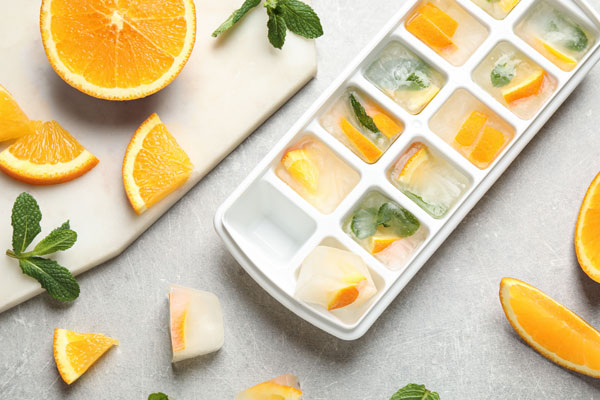
Save the best for last.
Turn your leftovers into culinary masterpieces. Instead of watching your leftover sauce languish in the fridge, portion it into small containers or ice cube trays. Frozen sauce cubes are perfect for giving soups, stews or pasta dishes a quick flavour boost. Simply portion it into ice cube trays and freeze.
The same principle works for desserts too. Fill the ice cube trays with leftover whipped cream and freeze them. Voilà! Instant whipped cream cubes for topping desserts, hot chocolate, or coffee drinks. The leftover repurposing doesn't end here. Get creative. The possibilities are endless.
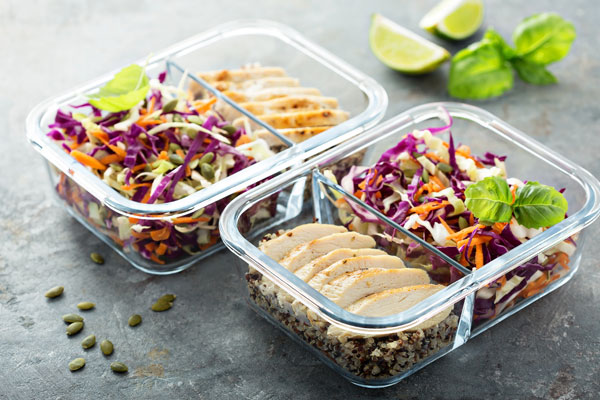
Good food needs good packaging.
An average European uses a staggering amount of packaging every year. Packaging protects our food, but it can also harm the environment. Whenever possible, choose glass containers over plastic ones for storing leftovers or frequently used food. Glass is reusable, it won't absorb odours or stains and can be recycled an infinite number of times.
How can you pack your food in an eco-friendlier way? Swap for sustainable storage that is better than aluminium foil. For instance, you can use the baking paper to wrap sandwiches. With simple measures, you can significantly reduce your reliance on single-use plastic and aluminium foil.

Don't let your fridge become mystery box.
How to fight food waste and fridge forays? Use clear containers and store similar items together so they're more visible. This will allow you to make better use of everything you buy and reduce those annoying "fridge visits" that waste energy. By planning your meals and shopping smarter, you'll reduce food waste, save energy, and potentially extend the life of your food.
Disorganized shelves lead to forgotten treasures in your fridge that often result as an unwanted food waste. Better organization in your fridge means better used food.
Cooking

Plan your meals like a chef.
Your cooking creativity is important. And so is your planning. It's wise to always plan your meals and cook in batches. Try to come up with at least a rough idea of your weekly meals and shop accordingly.
Make use of the special fridge compartments, like vegetable drawers or meat and fish drawers to ensure your food retains its nutrients and avoid wasting the food that goes bad quickly. Freezing is also a good option for those days when you simply haven’t got enough energy to deal with cooking a full meal.
These small steps will help you fight unneccesary food waste in your household. Saving you money for better things in life.
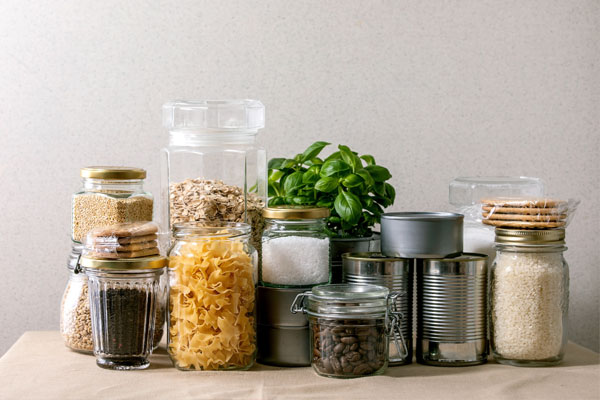
Close to the eyes, close to the heart.
Keep your favourite ingredients always at hand. This way you can always cook with products that you like and use regularly. Stock up on bases like grains, legumes, rice, pasta and meat to create a few basic meals. Don't forget on your beloved herbs and spices to give the basic meals exceptional flavours.
You can always have canned beans or chickpeas close for a quickly prepared side dish. Donate those ingredients that you are sure you won't use. And make someone happy.
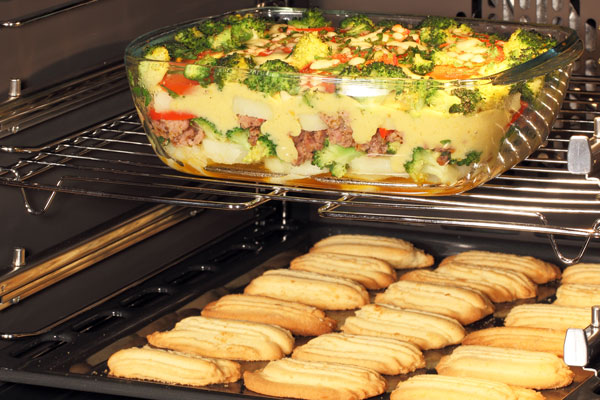
Good things cook in pairs.
Why cooking just a single meal at a time? Next time when you need to use the oven, think if you can cook some other meals in the oven as well. Some things go well together in the oven and you can upgrade a single dish with extra taste if it's cooking in pairs.
For instance, if you are baking the chicken wings, try to bake the potatoes or the vegetables there as well. Or when preparing lunch use the free space in the oven to bake the evening snack as well. Sharing is caring. Your creativity is the limit to use the energy in the best possible ways.
Dishwashing
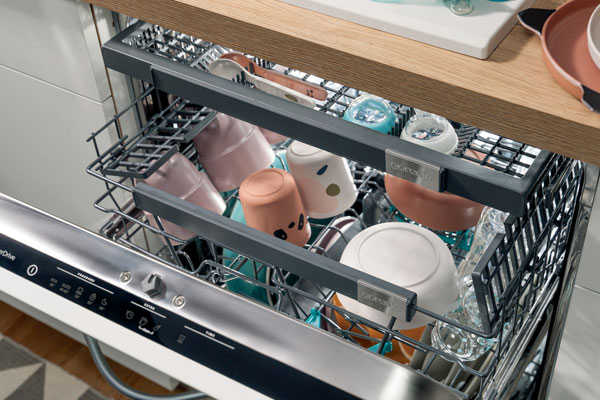
Full or half-empty dishwasher, that is the question.
A general rule of thumb is that you should always try to run your dishwasher full of dishes. This way you will use less energy, water and detergent. When using the dishwasher less often can also save your precious time. On the other hand, you should not overcrowd or overload the dishwasher, as it can block the spray arms and prevent water from reaching all surfaces, resulting in dishes that are not properly cleaned.
So, to answer the original dillema: the dishwasher should be full when running, but not jam packed, so it has enough room to work untill perfection.
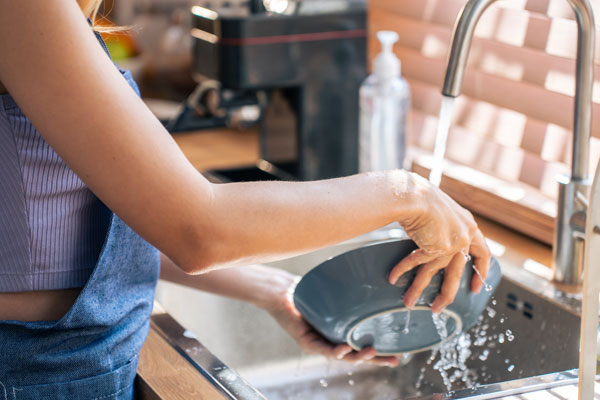
A hack toward the perfectly clean dishes.
Some people like to rinse the dirty dishes before putting them into the dishwasher. But, pre-rinsing by hand can often lead to losing the extra water and time.
But here's a trick for outstanding dishwashing: "Scrape that plate.''The dishwasher's cleaning ability is compromised when you deposit too much food residue into it. Though it might seem obvious, scraping leftover food off the plates before putting them into the dishwasher is a great habit to learn.
There’s good news too – you don’t have to pre-rinse the dishes, the high temperature inside the dishwasher will take care of it.
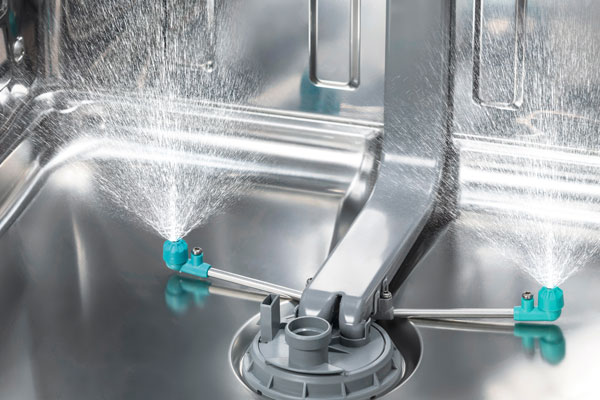
Sometimes your dishwasher needs your attention too.
Your dishwasher is always here for you. But sometimes it needs your help too. To avoid failure, leaks, and/or damage one should at least clean them occasionally. If you see stuck-on food particles, residual detergent, and mineral buildup on interior mechanisms of the dishwasher this means it is time to clean it.
You don’t need special chemicals for this task, just run your dishwasher on a normal cycle using two cups of white vinegar instead of detergent. Being extra thorough, you can also wipe down the interior walls and racks with a solution of vinegar and baking soda. Or use a special program,like Gorenje’s Self clean programme, for example.
A good thing to remember is to occasionally check for clogs. These usually develop in the spray arm and the drain, but the fix is quite easy. Just use a toothpick or needle to dislodge any particles.
